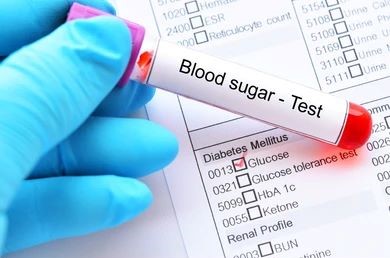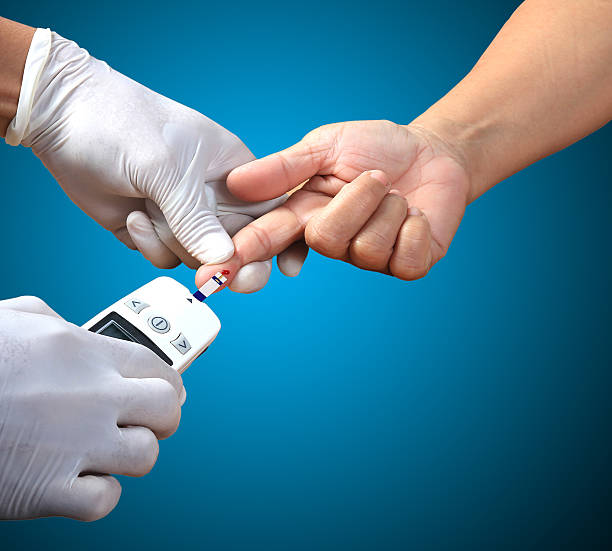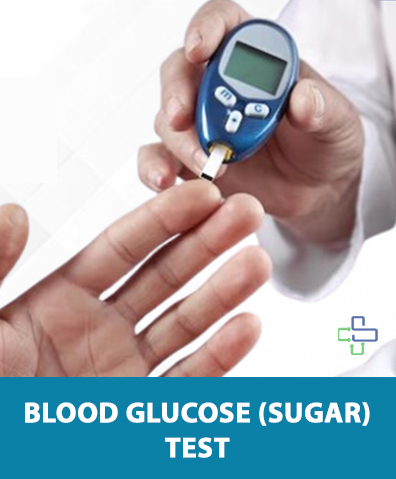Monitoring your blood sugar levels is essential for managing your health, especially if you’re living with or at risk of diabetes. A blood glucose (sugar) test is a simple but critical tool in identifying and managing blood sugar-related health issues. Whether you’re searching for a “blood sugar test near me” or looking for information on preparation, this guide covers it all.

What is a Blood Glucose (Sugar) Test?
A blood glucose (sugar) test measures the amount of glucose in your blood, helping identify and monitor conditions like diabetes and prediabetes. This simple yet critical test can be done at home, in a lab, or at a hospital, offering insights into how your body processes sugar. Whether you’re managing diabetes or being proactive about your health, this test provides valuable information for maintaining your well-being.
What is Blood Glucose (Sugar)?
Blood glucose, or blood sugar, is the primary sugar found in your blood. It comes from the food you eat and serves as a vital energy source for your body. Insulin, a hormone produced by the pancreas, helps regulate blood sugar levels by enabling cells to absorb glucose for energy. When glucose levels are too high or too low, it can indicate underlying health concerns, such as diabetes or hypoglycemia. Maintaining balanced blood sugar levels is essential for overall health and energy.
Normal Ranges
The results of a blood glucose test can vary depending on factors such as whether the test was taken on an empty stomach (fasting) or after a meal. Here are the typical normal ranges:
- Fasting blood sugar test (FBS) : 70–100 mg/dL (normal).
- Non-fasting glucose test (random): Under 140 mg/dL.
- Post-meal blood glucose test: Below 180 mg/dL.
- Glucose tolerance test (for prediabetes or diabetes):
- Normal: Below 140 mg/dL.
- Prediabetes: 140–199 mg/dL.
- Diabetes: 200 mg/dL or above.
Accurate testing is essential for understanding your glucose levels. Search for a professional blood sugar test at a trusted diagnostic lab /hospital or blood sugar testing lab nearby for precise results.
Does a Blood Glucose (Sugar) Test Require Fasting?
Not all blood sugar tests require fasting. Here’s a breakdown:
- Fasting blood glucose test: Yes, requires 8–12 hours of fasting before the test.
- Non-fasting glucose test: No fasting is necessary.
- Post-meal blood glucose test: Conducted about two hours after eating.
- Diabetes management blood test or fingerstick blood sugar test: Can be done at any time.
If you’re unsure about which type of test you need, consult a healthcare provider or opt for online blood sugar test booking to get guidance.
Who Should Get a Blood Glucose (Sugar) Test?
You may need a blood glucose test if you:
- Are experiencing symptoms like increased thirst, frequent urination, or unexplained fatigue.
- Have a family history of diabetes.
- Are overweight or have a sedentary lifestyle.
- Have been diagnosed with prediabetes and need monitoring.
- Are pregnant (to check for gestational diabetes).
- Need a routine diabetes management blood test.
Testing can also be preventive for those who wish to monitor their blood sugar levels at home through self-blood glucose testing or visit a hospital for a blood sugar test.
How Long Do Results Take?
Blood glucose test results are typically quick:
- Fingerstick blood sugar test: Immediate results.
- Lab-based glucose tests: Results are often available within a few hours to a day.
For convenience, consider online blood sugar test booking to streamline the process and receive results directly.

Why Choose a Professional Blood Sugar Test?
While home glucose testing is convenient, a professional test ensures accuracy. Most Hospitals and diagnostic labs provide home blood sample collection for lab tests & use advanced methods to provide reliable readings, especially for tests like the glucose tolerance test or diabetes blood sugar test.
By visiting a blood sugar testing lab nearby, you can ensure:
- Precise monitoring for diabetes management.
- Accurate results for prediabetes or diabetes diagnosis.
- Professional guidance on your next steps.
Tips for Blood Glucose Test Preparation
- Follow fasting instructions if required.
- Avoid heavy physical activity or stress before the test.
- Inform the diagnostic lab of any medications you’re taking.
- For fingerstick blood sugar tests, ensure your hands are clean and dry.
Whether you’re managing diabetes, monitoring prediabetes, or simply being proactive, regular testing is vital for your health. From how to test blood sugar at home to finding a blood glucose test near me, resources are available to make the process easy and accessible.
Book your test today and take charge of your health!

Leave a Reply